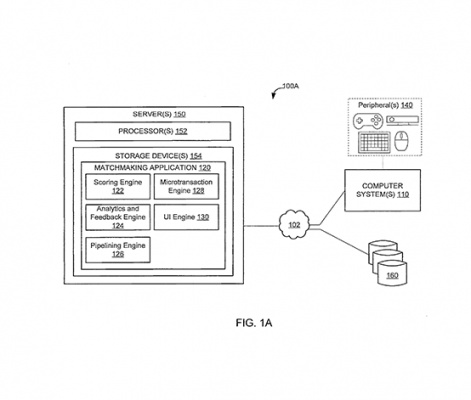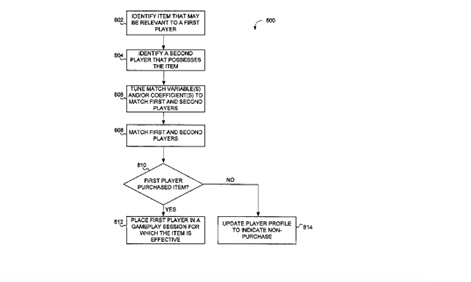A newly-granted patent to Activision shows a matchmaking system that would encourage players to spend money within its games.
As spotted by Glixel, the patent was filed in 2015 and approved on October 17th. Through algorithms, the system would match low skill players with high skill ones in order to encourage the lower skilled player to spend money in-game.
One chart from the patent shows a means to identify items that one player might want, find a second player with that item, and then match them. If the first player went on to purchase the item, the game would place them in a game where it was effective, thus reinforcing their decision.
In the patent application, Activision doesn’t even shy away from this. Literally the first line of the claim is “A computer-implemented method of driving microtransactions in a multi-player game.”
All of which is rather nefarious, and comes at a bad time. Recently there have been worries about loot boxes in games, and the models that might attempt to manipulate users into purchasing them.
“This was an exploratory patent filed in 2015 by an R&D team working independently from our game studios,” an Activision spokesperson has told Kotaku. “It has not been implemented in-game.”
This was echoed by Destiny community manager, Deej (below).
None of this functionality appears in Destiny. https://t.co/IXlR05tZ1c
— DeeJ (@DeeJ_BNG) October 17, 2017
Sure, this might not have been used yet. And yes, it might sit on the pile of patents a company owns and never be used ever. But the patent application outlines the greed of triple-A publishers in stark and uncertain terms.




















